Results
-
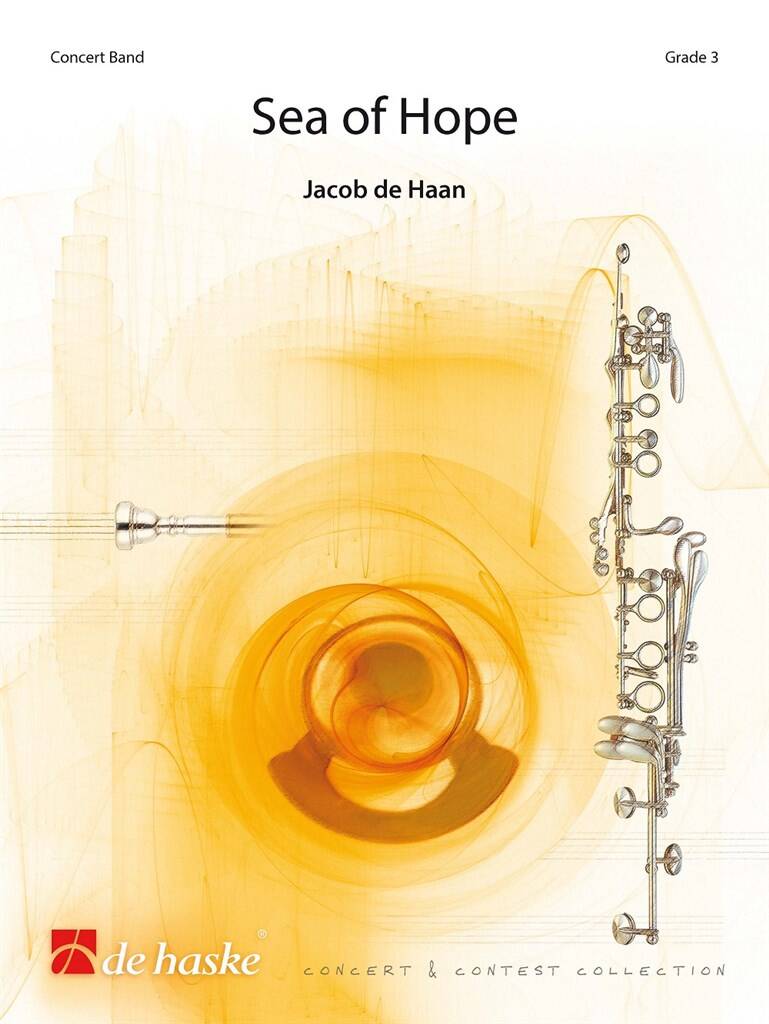 £119.99
£119.99Sea of Hope - Jacob de Haan
Sea of Hope is an optimistic work about new land arisen from the former Zuiderzee (the Netherlands). In the introduction, the sea is conveyed in all its glory and ferocity, through a melody that keeps you wondering whether it makes you happy or sad. Then, finally, there is a glimmer of hope, when the water is dammed up and the land partly reclaimed (by conversion into polder land). The town of Dronten, for instance, develops into a place where one day two people meet up and fall in love. This love is reflected in the slow, passionate middle movement. New life in the town is celebrated joyfully: the zest for life clearly shines through this part of the work, followed byoptimism and celebration in the closing bars.
Estimated dispatch 7-14 working days
-
£248.99
Odysseia - Maxime Aulio
Washed up on the Phaeacian shore after a shipwreck, Odysseus is introduced to King Alcinous. As he sits in the palace, he tells the Phaeacians of his wanderings since leaving Troy. Odysseus and his men fi rst landed on the island of the Cicones wherethey sacked the city of Ismarus. From there, great storms swept them to the land of the hospitable Lotus Eaters. Then they sailed to the land of the Cyclopes. Odysseus and twelve of his men entered the cave of Polyphemus. After the single-eyed giantmade handfuls of his men into meals, Odysseus fi nally defeated him. He got him drunk and once he had fallen asleep, he and his men stabbed a glowing spike into the Cyclop's single eye, completely blinding him. They escaped by clinging to the belliesof some sheep. Once aboard, Odysseus taunted the Cyclop by revealing him his true identity. Enraged, Polyphemus hurled rocks at the ship, trying to sink it. After leaving the Cyclopes' island, they arrived at the home of Aeolus, ruler of the winds.Aeolus off ered Odysseus a bag trapping all the strong winds within except one - the one which would take him straight back to Ithaca. As the ship came within sight of Ithaca, the crewmen, curious about the bag, decided to open it. The winds escapedand stirred up a storm. Odysseus and his crew came to the land of the cannibalistic Laestrygonians, who sank all but one of the ships. The survivors went next to Aeaea, the island of the witch-goddess Circe. Odysseus sent out a scouting party butCirce turned them into pigs. With the help of an antidote the god Hermes had given him, Odysseus managed to overpower the goddess and forced her to change his men back to human form. When it was time for Odysseus to leave, Circe told him to sail tothe realm of the dead to speak with the spirit of the seer Tiresias. One day's sailing took them to the land of the Cimmerians. There, he performed sacrifi ces to attract the souls of the dead. Tiresias told him what would happen to him next. He thengot to talk with his mother, Anticleia, and met the spirits of Agamemnon, Achilles, Patroclus, Antilochus, Ajax and others. He then saw the souls of the damned Tityos, Tantalus, and Sisyphus. Odysseus soon found himself mobbed by souls. He becamefrightened, ran back to his ship, and sailed away. While back at Aeaea, Circe told him about the dangers he would have to face on his way back home. She advised him to avoid hearing the song of the Sirens; but if he really felt he had to hear, thenhe should be tied to the mast of the ship, which he did. Odysseus then successfully steered his crew past Charybdis (a violent whirlpool) and Scylla (a multiple-headed monster), but Scylla managed to devour six of his men. Finally, Odysseus and hissurviving crew approached the island where the Sun god kept sacred cattle. Odysseus wanted to sail past, but the crewmen persuaded him to let them rest there. Odysseus passed Circe's counsel on to his men. Once he had fallen asleep, his men impiouslykilled and ate some of the cattle. When the Sun god found out, he asked Zeus to punish them. Shortly after they set sail from the island, Zeus destroyed the ship and all the men died except for Odysseus. After ten days, Odysseus was washed up on theisland of the nymph Calypso.
Estimated dispatch 7-14 working days
-
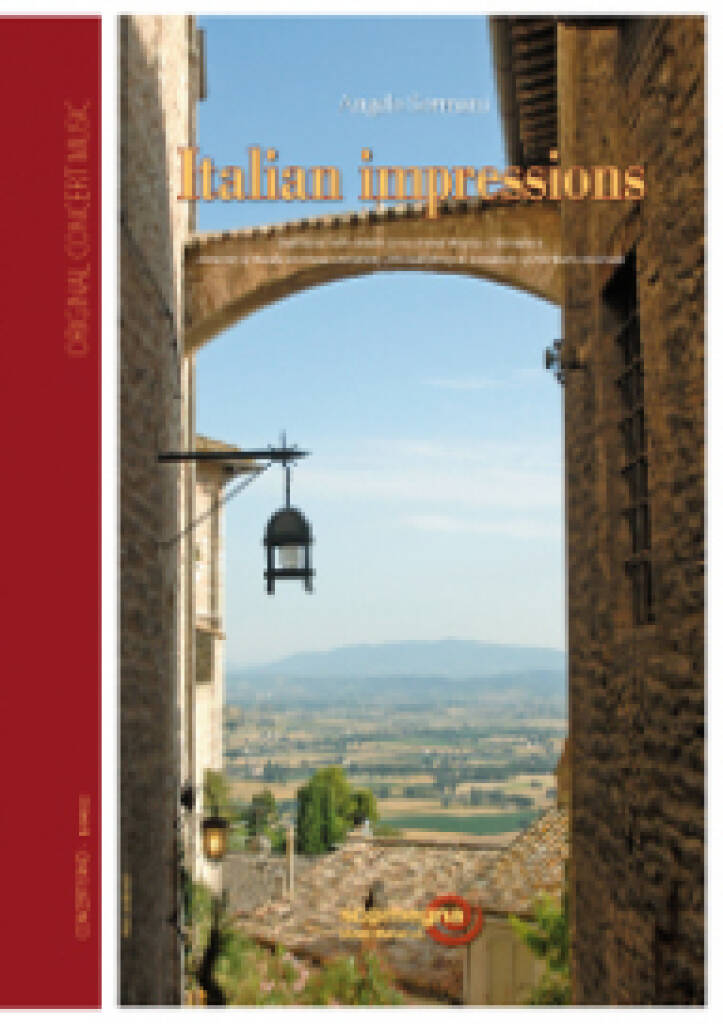 £126.50
£126.50Italian impressions - Angelo Sormani
"Italy is truly a magical land that has touched my heart beyond measure." These are the words describing the feelings that accompanied the various visits of the American conductor Wesley Broadnax in our country. Italian Impressions, a composition dedicated to Broadnax, portrays these feelings in three main sections that develop without interruption throughout the piece. The first section, "Magic Land," describes a trip to Rome and is a tribute to the splendor and magic of some of the venues in this city. Rich in historical and cultural significance, these places are moving because of their surprising architecture and artistic genius. The second part, "The Huge Castle," depicts his visit in the Umbrian Region. It is a reflective and suspended immersion in music that describes landscapes characterized by ancient houses, churches, courtyards, and squares. "Assisi," says Wesley, "is the city that glitters in the night sky, comparable to a huge castle!" The third part, "Medieval Ballad," is a reference to the city of Siena and Tuscany more generally. The main theme of this movement recalls medieval atmospheres and is based on the fourteenth-century ballad "Ecco la primavera" by Francesco Landino. The original material is presented, elaborated, and juxtaposed with new thematic motives, which lead to an energetic conclusion of the piece.
Estimated dispatch 7-14 working days
-
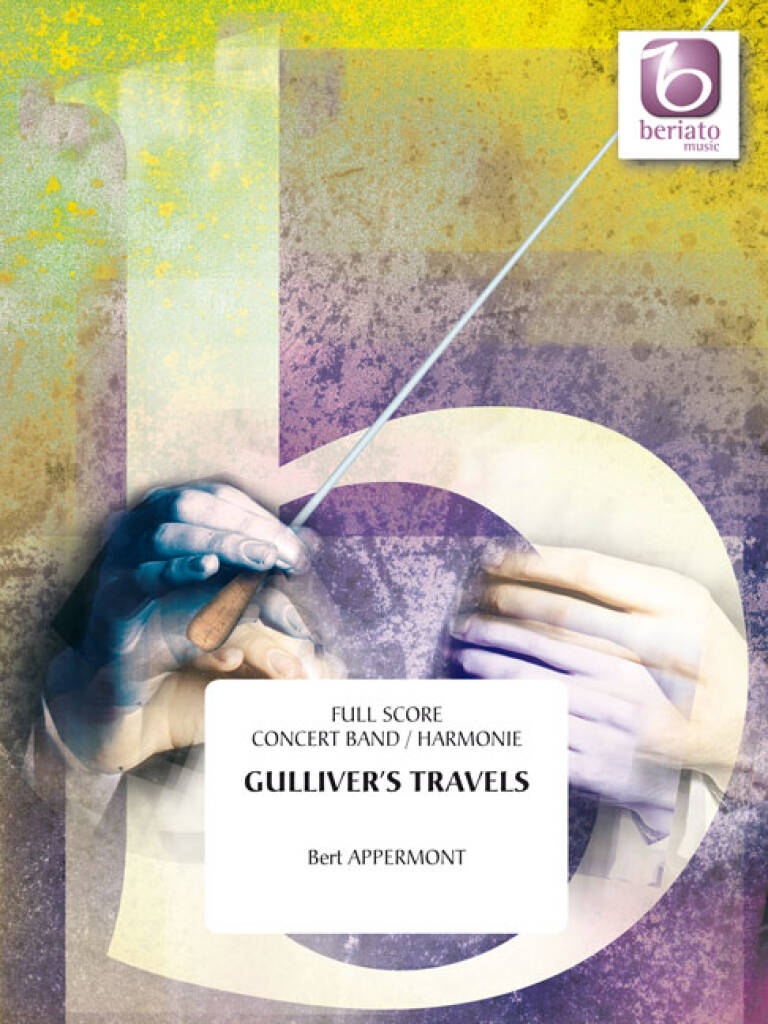 £134.99
£134.99Gulliver's Travels - Bert Appermont
The book Gullivers Travels (1726) by author Jonathan Swift formed the provocation for writing this composition. Even though this composition isnt a literal representation of the original story, a number of elements were still retained. The shipsdoctor Gulliver finds himself in 4 (fictive) areas, each with their own inhabitants and customs. Each part of this suite also received the name of one of these areas:I. Lilliput The enterprising Lilliputians are represented by a playful, common themein the first part.II. BrobdingnagIn the land of "Brobdingnag" Gulliver is carried off by gigantic giants, which you hear approaching with the sounds of the bassinstruments. The same theme is constantly repeated and quickened in order to increase thetension.III. LaputaLaputa is an island that floats in the air; its inhabitants are strange people with slanting heads. The dreamy, special atmosphere is especially well conveyed here.IV. The HouyhnhnmsFinally Gulliver finds himself in the land of theHouyhnhnms, where intelligent and noble horses rule over the primitive, undeveloped people (yahoos). The trumpets in the brilliant opening express the galloping horses; the gallant theme that follows (horns and trombones) symbolises the primitiveyahoos. The whole composition ends with a big finale.I intentionally tried to limit the degree of difficulty of Gullivers Travels. Despite this I think that this work can appeal to many orchestras due to the colourful orchestration (cues areprovided where needed), the simple and clear theme and the highly imaginative breeding ground of a beautiful story around which this composition is built."
Estimated dispatch 7-14 working days
-
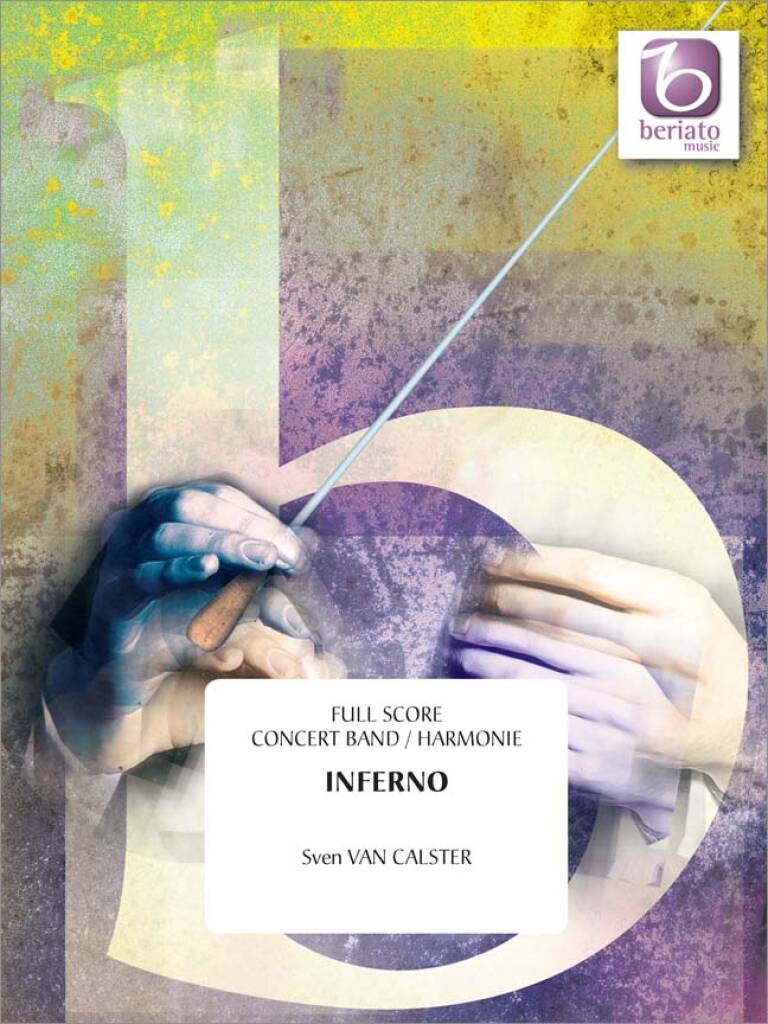 £118.99
£118.99Inferno - Sven Van Calster
On 25th May 2011 a huge fire broke out in the Kalmthoutse Heath nature reserve north of Antwerp. Within a very short time more than 600 hectares of heath land went up in flames. The effect on the surrounding environment was huge. The fire left deepscars affecting the residents, those responsible for heath land, and also the members of the fire brigade who for several days risked their lives to fight the fire.The composition Inferno begins majestically and on a huge scale, exactly as theKalmthoutse Heath is. Soon a theme is introduced into the work in which the magnificent beauty of nature can be heard. We then hear the fires on the heath set to music. Even thefire helicopter can be heard, together with the first discussions thattook place after the alarm was raised with the Kalmthoutse fire brigade.One fact remains at the centre of this work, however: the natural beauty and splendour of the heath landscape. This is expressed at the start of the work in a theme that recursthroughout the piece. Towards the end it is finally replaced by a peaceful conclusion, representing the hope for a speedy regeneration of this wonderful nature reserve. Download the audio file from the 'Attachments'.
Estimated dispatch 7-14 working days
-
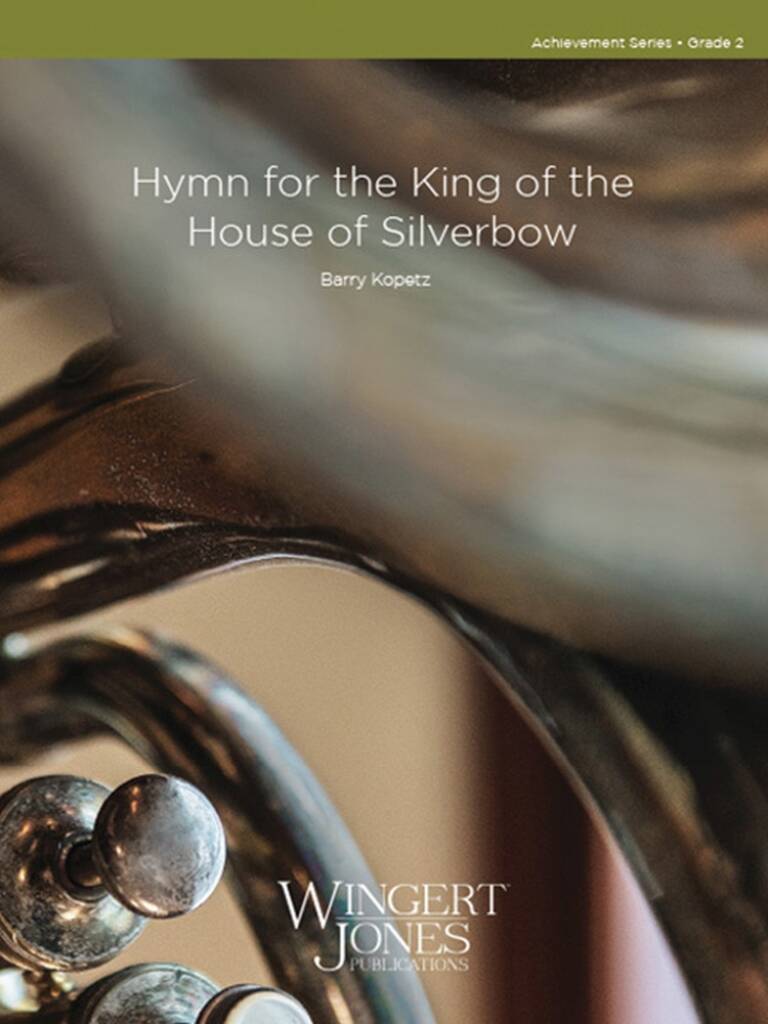 £71.50
£71.50Hymn For The King Of The House Of Silverbow - Barry E. Kopetz
Here is a musical representation of the King journeying to the Land of the Lochrians after being held in captivity for many years in the Land of Aeolia. The final section, Royal Hymn, is a setting of the hymn tune always played when there is an appearance of the King. It had not been performed since his disappearance.
Estimated dispatch 7-14 working days
-
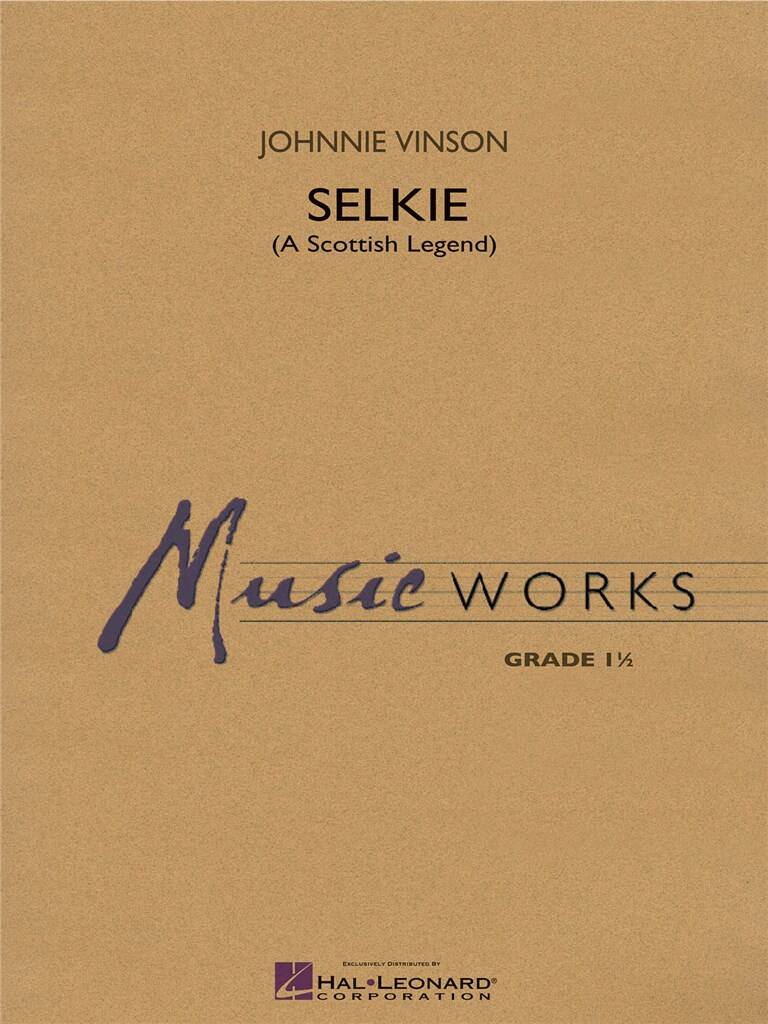 £42.50
£42.50Selkie - Johnnie Vinson
In Celtic folklore, a selkie is a mythical creature appearing as a seal in water, but taking human form on land. In this striking setting for second-year players the first movement, in a lyric and melancholy style, portrays theselkie as a baby seal. The second movement depicts a young boy on land and employs a number of characteristics of traditional Scottish folk tunes. This marvelous work provides opportunities for musical and cross-curricularexploration. Dur: 3:50
Estimated dispatch 7-14 working days
-
£150.00
The Sacred Pipe - Green
A mysterious work, The Sacred Pipe is the musical endeavor of a Native Cherokee myth. Extravagant melodic lines, tender harmonies, fast and intense tempos, and majestic fanfares ensure a film-like experience for the audience. Join the "Arrow Woman" on her journey through the land, as she fights against the norms of her tribe. The Sacred Pipe hopes to convey a musical journey that engulfs the grandiosity of the land, the majesty of mountains, and the purity of water.
Estimated dispatch 7-14 working days
-
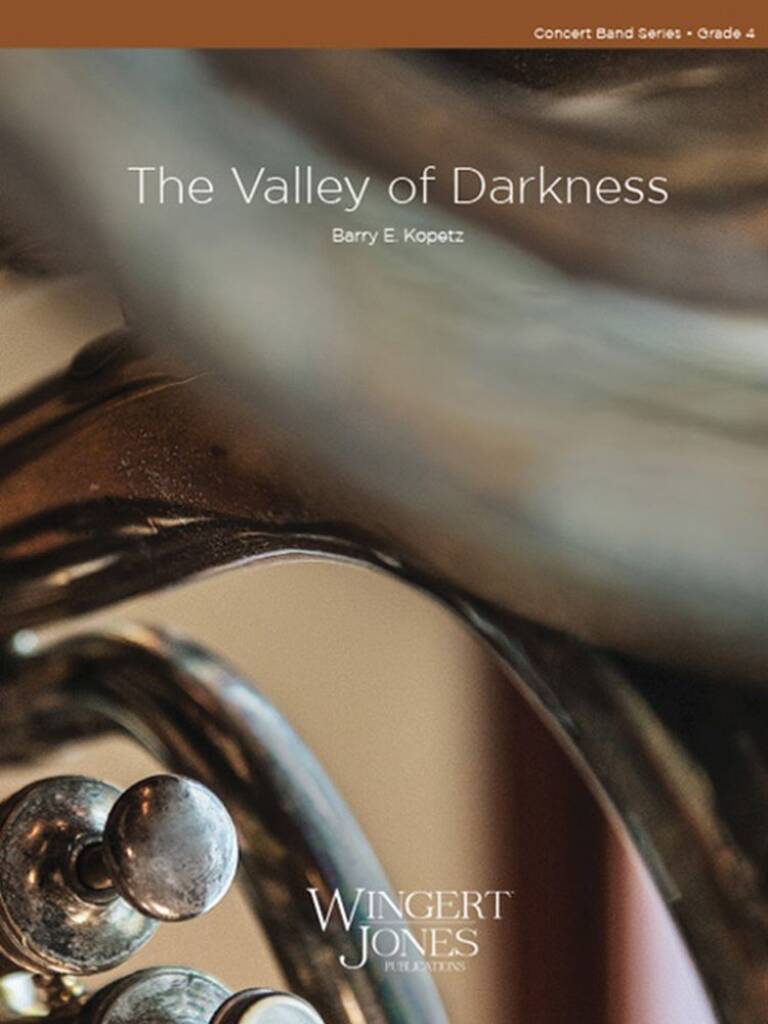 £104.50
£104.50The Valley of Darkness - Barry E. Kopetz
The Valley of Darkness . . . eerie . . . overgrown . . . unchartered . . . an echo of an era long past. The music tells the story of an expedition into this heretofore unnoticed valley in an unsettled land. As several imaginary scenes are portrayed, a sense of dread and foreboding permeates as the natives of the valley detect the presence of trespassers upon their land. When the end of the sojourn looms, the speed and urgency of the adventurers increases, and escape through the narrow crevice at the end of the valley is now within their reach. However, the inhabitants of the Valley of Darkness think otherwise . . .
Estimated dispatch 7-14 working days
-
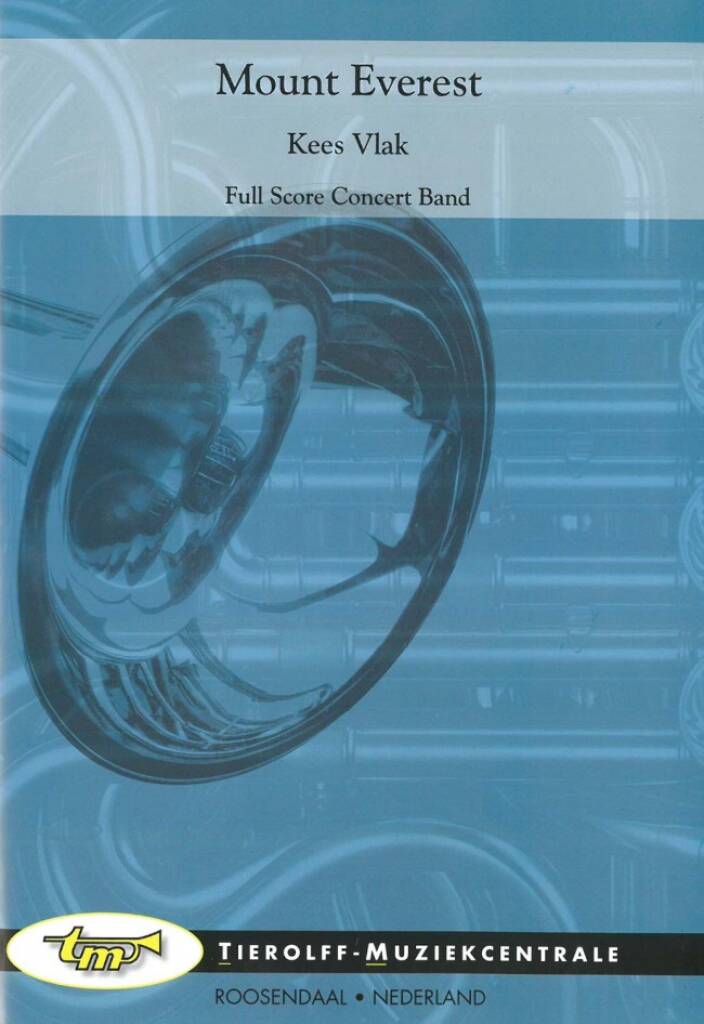 £110.00
£110.00Mount Everest - Kees Vlak
This composition basically consists of three fragments and an epilogue (conclusion):1) Plateaux, 2) Sherpas, 3) Climb. The piece starts with a musical depiction of the deserted plateauxs and mountain peaks of the Himalayas. The mysteriousness of theTibetan country was caused by its inaccessibility to other nations. One even believed that there was a paradise behind the huge mountains; the land of Shangra La. 1) After the sound of a gong, the Asian-like theme arises extremely softly from thedecay of the percussion. In bars 4 and 5 the syllables of Hi-ma-la-ya echo. Then a second theme appears; it symbolises the enchantment of the mountaineers by seeing the Mount Everest. 2) Eastern percussion, very evenly without emotion, sound from thedeserted village of the sherpas. The phrasing is prescribed by the number 'three'. From measure 56 Tibetian monks sing a chant, also with the religious background of the number 'three'. 3) The third part starts of with the sight of the giant MountEverest with an entirely new theme, that is played impressively by the strong low brass instruments of the band, immediately followed by the excited big climbing. The many surprises are depicted by the changing time signatures. Two themes are inconstant battle; the binary Himalaya theme and the ternary Mount Everest theme. Only once there is a steely composure. The registers in which the piece is played increase. The tension rises...Then the peak is reached. A long pause follows before onerealises that one is on top of the world. Slowly the emotions of joy grow and lead to an enormous climax. The first enchanted theme sounds again in total glory.
Estimated dispatch 7-14 working days
